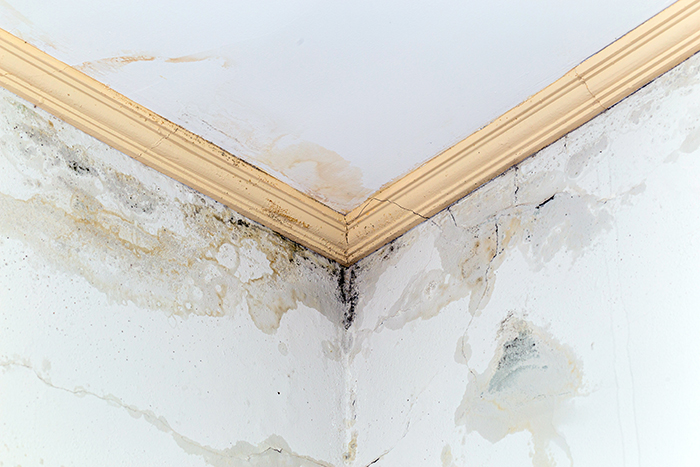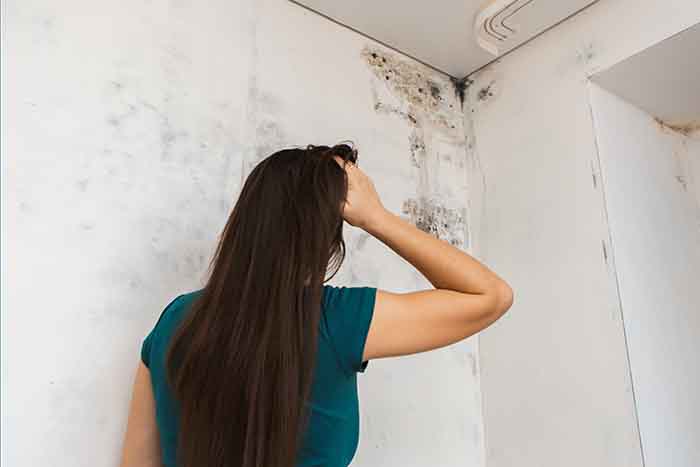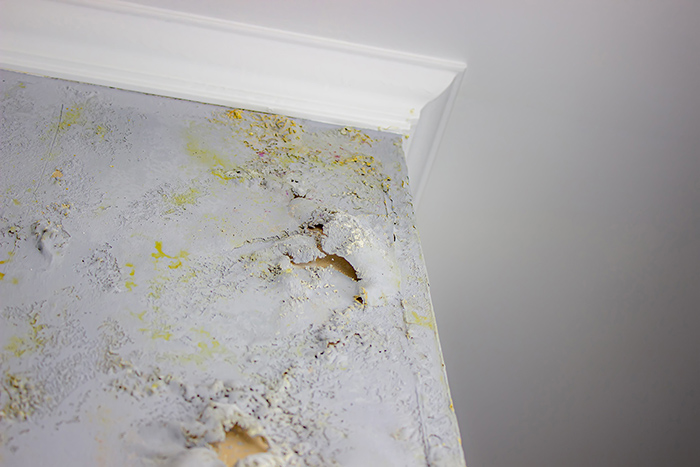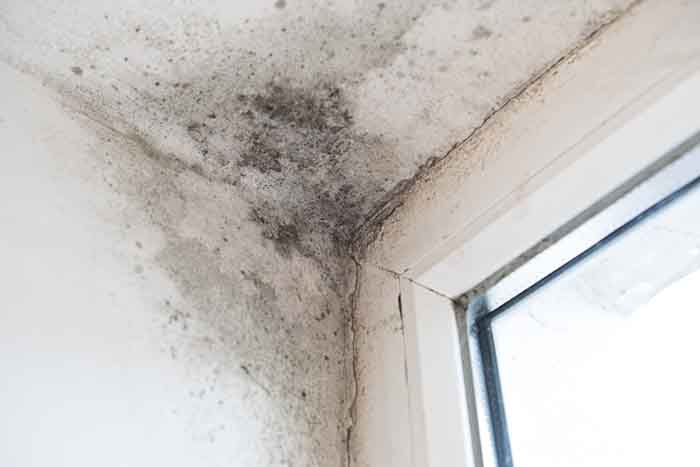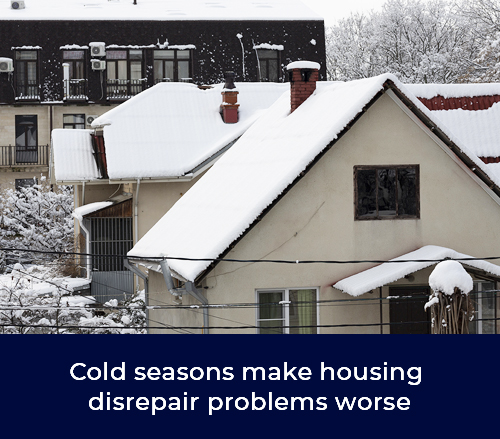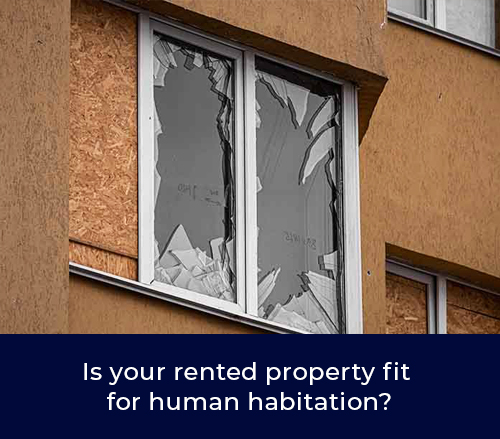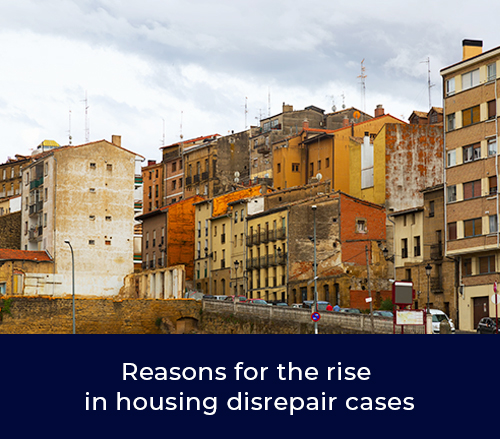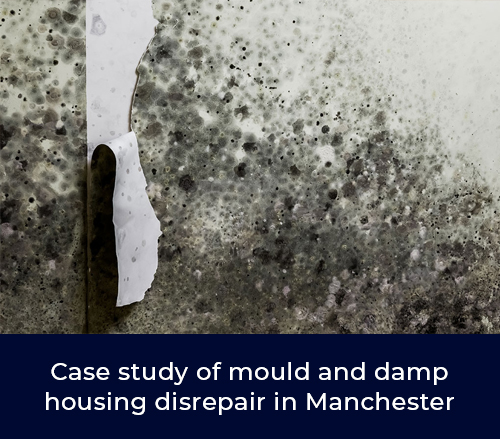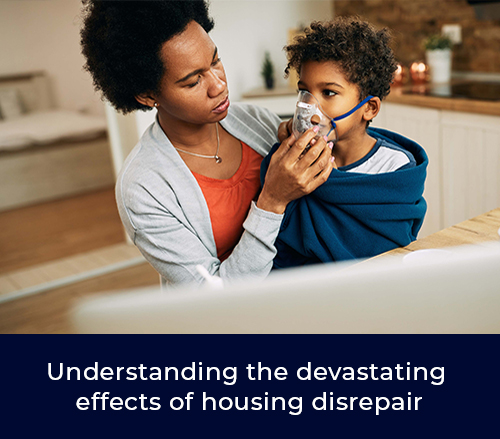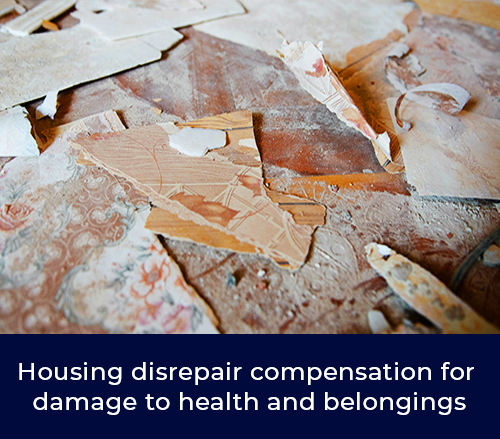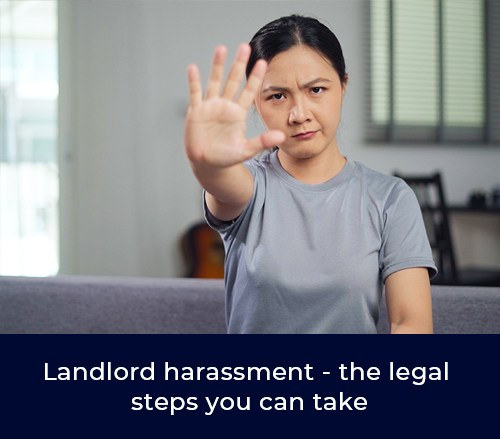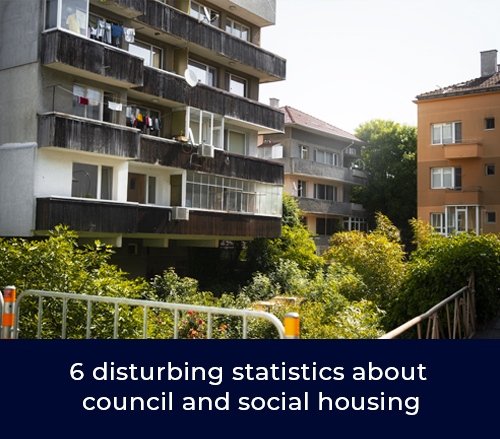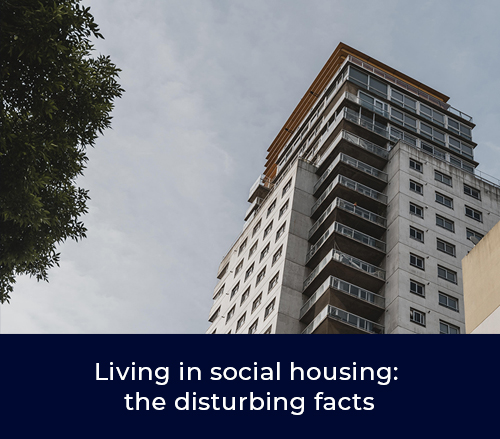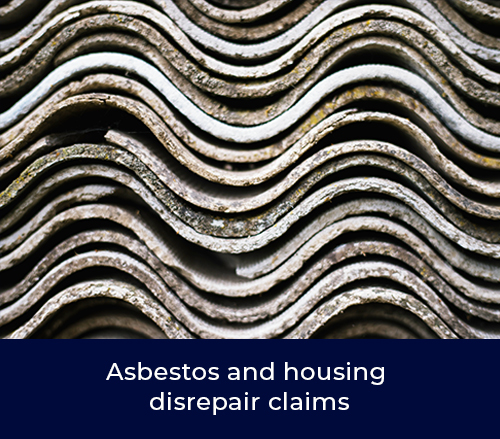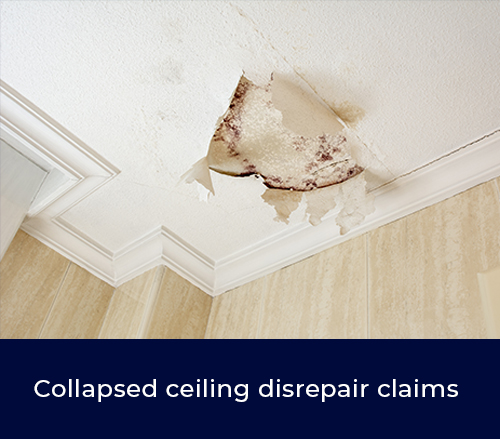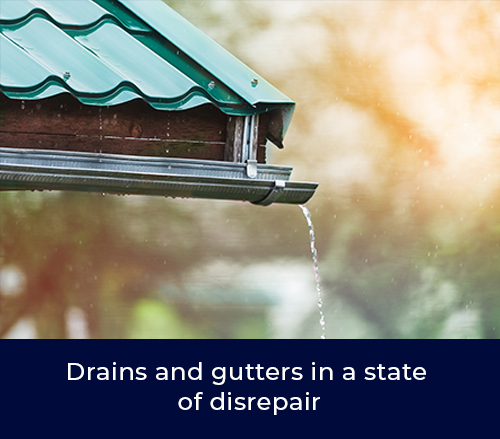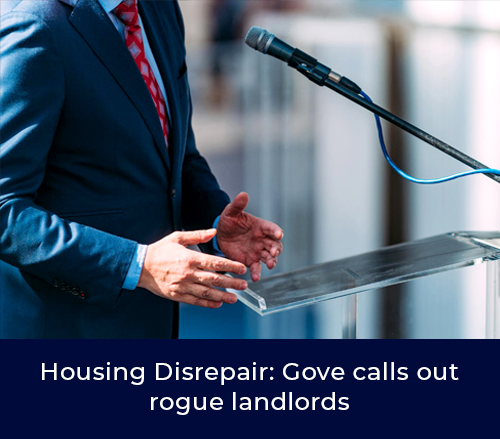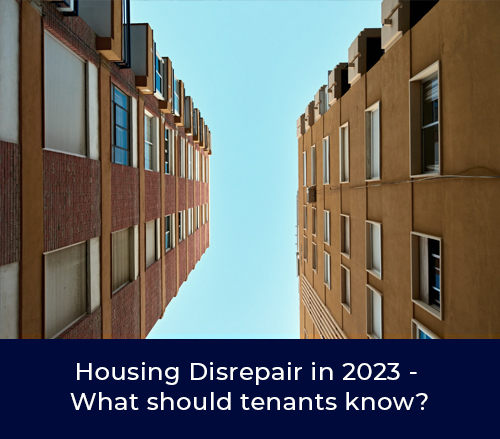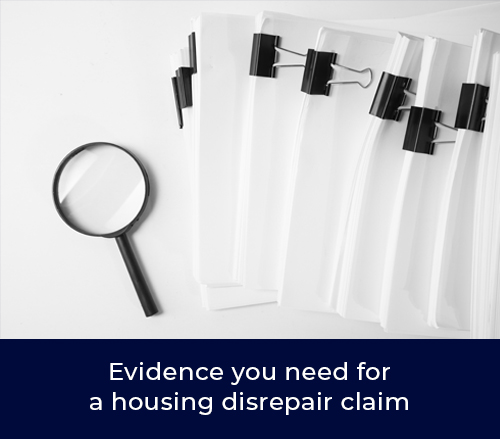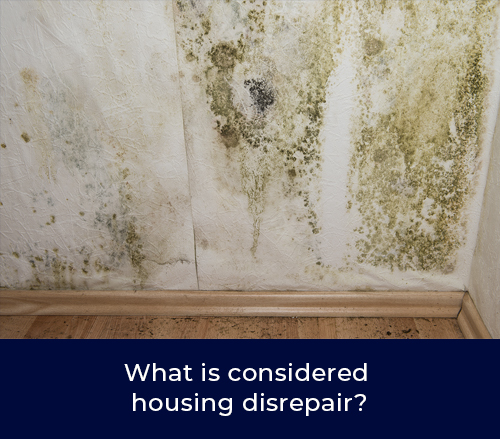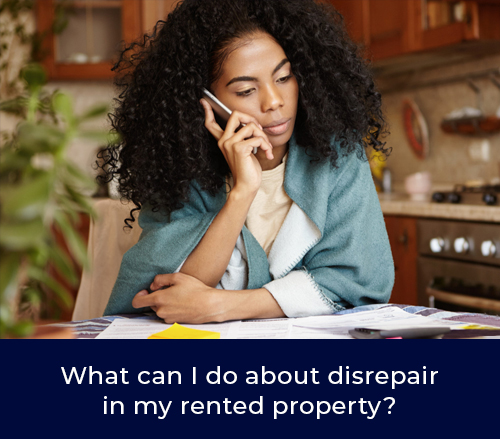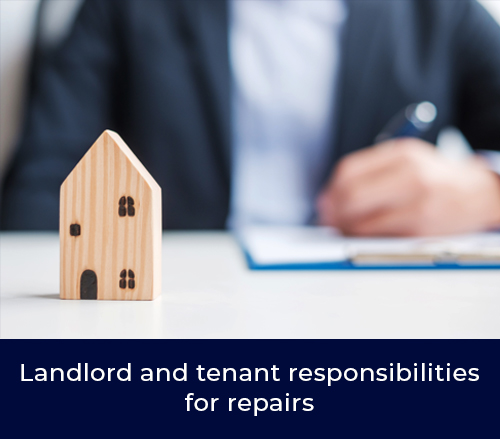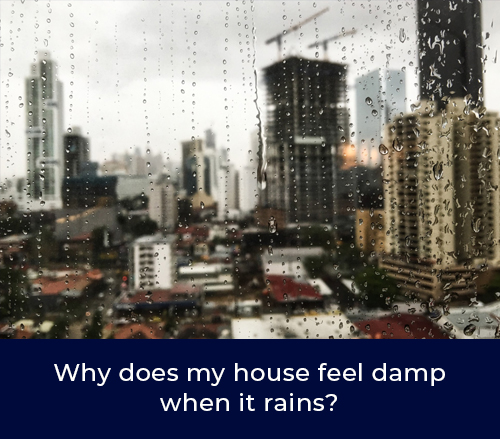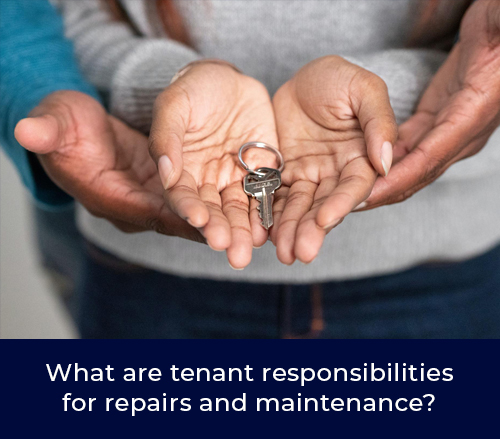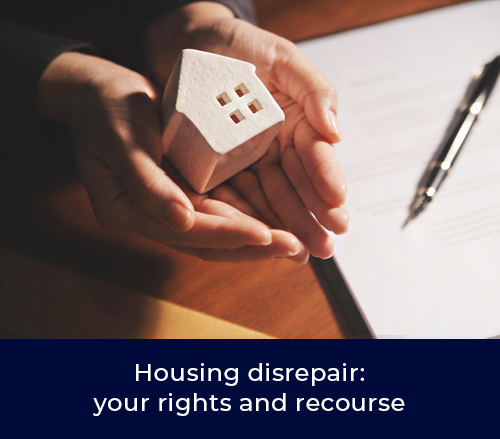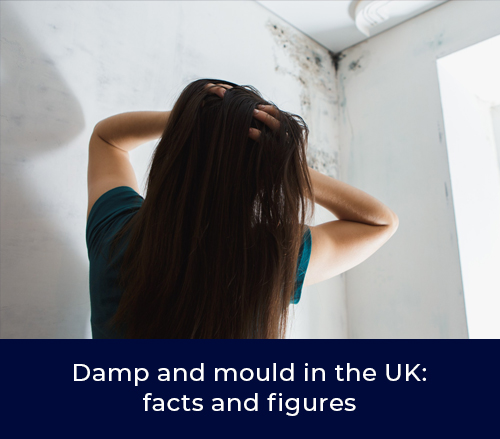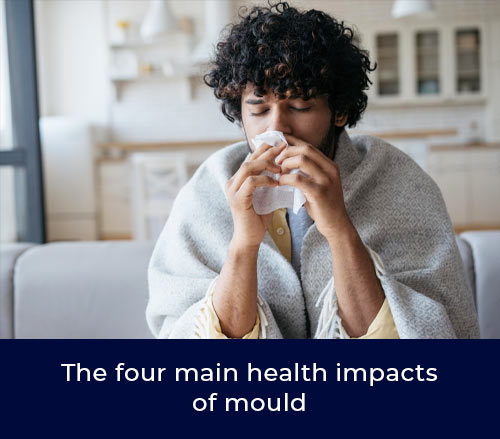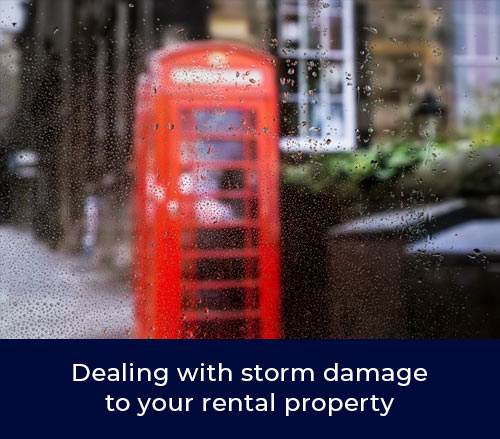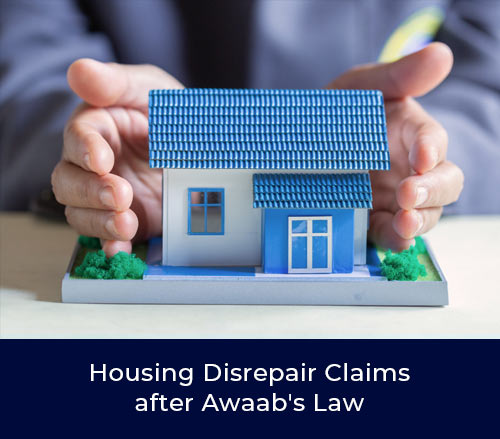Mould housing disrepair claim
Each year, countless tenants in the UK suffer from the negligence of their landlords. Neglecting to address mould in the property is a common problem that can cause serious health issues and damage personal belongings.
If you are living in a rented home from a council or housing association affected by mould, and your landlord has failed to make necessary repairs, you may be eligible for compensation. Our team of housing disrepair experts is here to assist you! We operate on a No Win No Fee basis, meaning you only pay if we win your case. Our success fee is ethical and one of the lowest in the market.
The housing disrepair claim check list
Can you answer yes to the following questions? If so, please get in touch so that we can discuss your case further:
Are you renting your home from the council or a housing association?
Are your rent payments up to date?
Is your landlord responsible for the disrepair?
Has the disrepair been reported to your landlord?
Has your landlord failed to repair the issue within a reasonable amount of time?
Process your disrepair claim in 3 easy steps with us

1. Get in Touch
Are you a council or housing association tenant? Contact us and tell us about your matter. We work on a 100% No Win No Fee basis, so you won’t pay a penny unless we win. Give as much information as you can. The more information you can provide, the better chance of successfully resolving your case. The initial assessment is always free and with no obligation to engage afterwards. Call 020 8578 7778.

2. Build Your Case
Let our experts do all the legal work for you. We will explain what documents you need to provide so that we can process your application. Once received, our disrepair lawyers will complete and submit the necessary documents to counterparties and courts.

3. Success
Remove the stress by having our disrepair lawyer by your side. Let us do the hard work. We will keep you updated every step of the way resulting in a successful outcome.
Get in touch with housing disrepair solicitors
We make it easy for you to speak with our disrepair experts
Use the online chat on our website
Call us on 020 8578 7778
E-mail us contact@silveroaksolicitors.com
Visit us at our office. We are open Monday-Friday 9am - 5.30pm
When you first contact us, we will ask for some initial details. You can be assured that everything you discuss with us will be completely confidential, and any information stored by us will be in accordance with UK data protection regulations.
At SilverOak Solicitors, we provide our clients with regular updates using a range of secure platforms such as video calls, voice calls, and secure messaging, all for your convenience!
Read recent client reviews
Why choose SilverOak Solicitors?
No Win No Fee
We work on a No Win No Fee basis for personal injury and housing disrepair claims. We only take on cases we are confident we can win. If we lose, you don’t pay our fees.
Highly Experienced
Our highly experienced solicitors and consultants have secured millions of pounds in compensation.
Excellent Client Care
You’ll have a dedicated file handler and senior solicitor working on your case so you won’t need to speak to lots of different people.
SRA Regulated Law Firm
We are a trustworthy SRA regulated law firm and member of The Law Society.
What is mould?
Mould is a type of fungus which forms on damp or rotting natural materials. If there is mould in your property it will pose a health risk, potentially a serious one. Mould growth produces allergens which cause an allergic reaction. Mould can produce Stachybotrys Chartarum, a mycotoxin which can cause bleeding inside your lungs.
Different moulds cause different issues to your respiratory system or central nervous system. Some are so toxic that they can hospitalise you. If untreated, mould spores can eventually kill. Finding a legal representative to work on your behalf can give you the best chance to bring your social landlord to justice. It could even help you cover the costs of the medical bills or compensate you for your pain and suffering.
What is mould disrepair?
Mould disrepair refers to the condition where a property has mould growth due to negligence or failure to address the issue by the landlord. It can cause health problems and damage to the property. Mould disrepair requires prompt action to rectify the issue and ensure a safe living conditions.
Why mould is dangerous for your health?
There are over 100,000 types of mould. Most mould species aid in the process of decay. Of these, there are thousands of types of mould inside your house, every day. Aside from the more severe Stachybotrys Chartarum, common household moulds can cause asthma flare ups or other allergic reactions. These allergens are released into the air and can cause a runny nose, sore throat or sneezing.
Types of mould include:
- Alternaria is common in bathrooms and kitchens across the UK. It forms as deep brown or green patches, and scientists associate it with asthma attacks.
- Chaetomium is a darker and more widespread mould group. It spreads out in dark patches in areas affected by damp. You see this after a bad flood. You should not breathe in the fumes it produces.
- Black mould – black mould is also known as Stachybotrys fungi. Even without the threat to your lungs, it can cause eyesight problems, skin infections, circulatory issues and problems with breathing.
- Fusarium fungi look like yellow and white flowers. They are best known for the way they eat through crops. They are active in colder climates just like the UK.
- Aspergillus is a food based fungi which appears as a powdery dust.
- Penicillin presents as blue spores on food.
These are just a few of the types of mould you can find here in the UK. If you suspect your house has mould in the walls, floor or ceiling, you should approach your landlord to fix the issue. If they refuse, call one of our housing disrepair solicitors and protect your rights – and your health.
Who is eligible to claim for mould disrepair?
To be eligible to claim for health problems caused by mould, you must first suffer one of the health problems associated with mould. Secondly, you must not be the property owner or landlord. Instead, you must be living in rented accommodation. The UK government offers helpful advice on how you can safely search for a new rental property. They note the warning signs you should look out for when renting a property and one of those items is mould and damp patches.
Your rights as a tenant
As a tenant, your landlord is responsible for repairs conducted on the property. Those repairs include mould. The government outlines the landlord’s responsibilities and provides a comprehensive list including damage to the property’s structure and exterior, basins, sinks, baths, sanitary fittings, and more. You should not conduct your own repairs unless the lease agreement says you are responsible for them.
If you discover mould on your property, you should first report it to your landlord. You should arrange a time for them to come to the property and assess the situation, or for them to bring in workers to rectify the situation. It is when your landlord or property owner does not act that you should seek legal representation.
Landlord responsibilities when dealing with mould
The landlord of any property must carry out essential safety checks each year using qualified tradespeople. They have a legal obligation to keep your property safe. Since mould affects the health of the tenant, this does not count as keeping your property safe. In fact, if your property has an exceptionally bad mould problem, it is not suitable to live in. Your landlord then has a legal obligation to bring your home back to a liveable standard.
It is better if you continue to pay your rent. Refusing to pay in protest seems like an innovative idea but can get you into legal problems of your own.
How to apply for a housing disrepair solicitor
We specialise in housing disrepair claims. Call us today to talk to one of our housing disrepair experts about the mould in your rented accommodation. We can help you prosecute a rogue landlord and can recover expenses on your behalf. Your initial assessment is free and you are under no obligation to proceed.
Why do you need a housing disrepair solicitor?
We can assist you in claiming the highest possible compensation for the disrepair caused by your landlord. We can guide you through the process, provide advice on gathering evidence, and negotiate with the other party on your behalf. If you have reported a mould issue to your landlord without successful outcome, we can advise you on the next steps to take. SilverOak Solicitors operates on a No Win No Fee basis for council and housing association tenants, meaning you won’t pay anything unless we successfully win your case.
Making a housing disrepair mould claim
Has your landlord failed to make repairs to your home?
Our highly experienced housing disrepair solicitors will fight for your repairs and compensation on a NO WIN NO FEE basis. Contact us for a free consultation.
If your rented home falls below a reasonable living standard because it has damp, mould or other issues, you could make a claim for compensation. You must have reported the issues and given your landlord a reasonable amount of time to repair the issues. If they have not you can make a claim for damage, personal injury, financial loss and/or nuisance.
Your landlord is responsible for the above repairs irrespective of what your tenancy agreement says. Your landlord may be responsible for additional repairs stated in your tenancy agreement.
Claims can be made either during your tenancy or after your tenancy, as long as you are making the claim within 6 years of the date that you informed your landlord of the disrepair. Personal injury claims related to housing disrepair must be made within 3 years of the date that you informed your landlord.
Your landlord may not be responsible for repairs if they are a result of you either not taking care of the property properly or doing something unreasonable.



